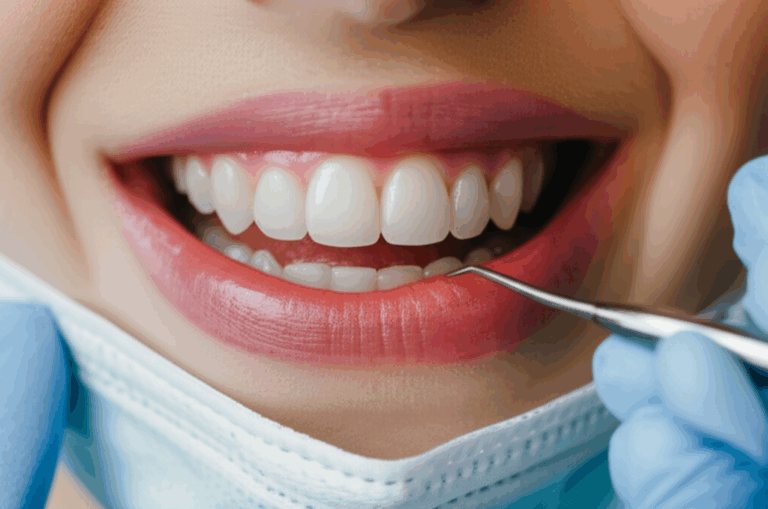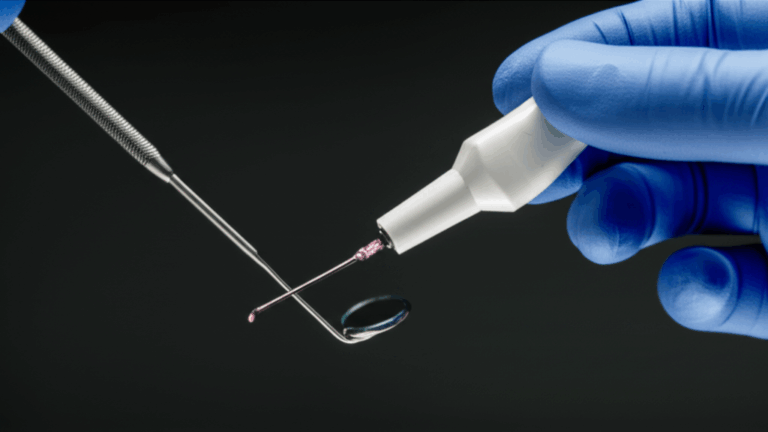
What is a Dental Therapist? Your Simple Guide to This Important Dental Care Helper
Ever wondered what a dental therapist does? You might have heard the term when visiting the dentist or reading about teeth care—but what does it really mean? In this article, you’ll learn who dental therapists are, why they matter, and how they make dental care better for everyone. Keep reading to see how dental therapists can help your family and community smile!
Table of Contents
1. Introduction: Why Should You Know About Dental Therapists?
Going to the dentist can be scary for lots of people, especially for kids or if you haven’t been in a while. Plus, it can be expensive. If you live far from a big town or money is tight, getting good dental care can feel really hard.
This is where dental therapists come in! Dental therapists are special oral health helpers who work with dentists to give basic, everyday dental care to more people. They make it easier and quicker to look after your teeth—especially if you live somewhere that doesn’t have many dental clinics.
If you want to know how dental therapists can help you, your family, or your town, keep reading. They do a lot, and their work is important.
2. What Is a Dental Therapist?
Imagine you go to the dental office for a cavity or a cleaning, and instead of a dentist, you see a kind dental therapist who helps you out fast and calmly. But who are they?
A dental therapist is a licensed dental worker who gives both checkups and simple dental care. They usually work with dentists and dental hygienists. Think of them like nurse helpers, but for your mouth!
Their main job is to help more people get early, basic dental care like cleanings, fillings, and fluoride to stop cavities. They can do a lot of the things that dentists do, but they mostly do the easy stuff. They often help kids, families, and anyone who finds it hard to go to the dentist.
3. How Did Dental Therapists Start?
So how did this job begin? Dental therapists started almost 100 years ago in New Zealand to take care of children’s teeth in schools. After that, countries like Australia and the UK started using dental therapists to help people in places far from cities.
In the United States, dental therapists began working in Alaska around 2004 to help Native Alaskan groups who lived too far from regular dental offices. Now, states like Minnesota, Vermont, and Washington allow dental therapists to work.
Today, you can find dental therapists in many countries, like Canada, the United Kingdom, and more places in the US [Reference: Journal of the American Dental Association, 2021]. Their job is always to help everyone get dental care—not just people living near the city or with more money.
4. What Can a Dental Therapist Do?
Dental therapists are kind of like “Swiss Army knives” for dental care! You may wonder what they actually do. Here’s a list:
A. Preventive Dentistry
- Oral Health Exams: Dental therapists can check your teeth and gums for problems, like small holes or gum swelling. Dentists make the final decision, but therapists spot things early.
- Teeth Cleaning: They clean teeth by removing stuff that causes cavities, just like dental hygienists. They also polish up your teeth, so they look nice.
- Fluoride and Sealants: Dental therapists put on fluoride or plastic sealants to help stop cavities, which is super helpful for kids.
- Teaching About Tooth Care: They can show you the right way to brush and floss to keep your teeth healthy.
B. Restoring Teeth
- Fillings: Got a hole in your tooth? Dental therapists can fill it, especially for simple cavities.
- Simple Tooth Pulls: If a loose baby tooth needs to come out, or a bad adult tooth is ready, dental therapists can do the job (with some rules).
- Temporary Fixes: If your tooth needs a quick patch, dental therapists can help until you see a dentist.
C. Other Jobs
- Numbing Teeth: They can give shots to make your mouth feel numb so you don’t feel pain during care.
- Taking X-Rays: Dental therapists can take pictures (X-rays) to help find problems.
- Prescriptions: In some places, they might give you special mouthwashes or fluoride—depending on local rules.
- Referrals: If you need harder care, like a root canal, they send you to a dentist or specialist.
Dental therapists sometimes use help from a crown and bridge lab or dental ceramics lab for tooth repairs, making sure your teeth look and work better.
5. Dental Therapists vs Dentists and Dental Hygienists
You might ask, “Isn’t this what a dentist does?” Let’s compare all three jobs!
| Job Title | Main Work | School Time | What They Can Do | Supervision Needed |
|---|---|---|---|---|
| Dentist | Diagnosis, hard jobs | 6-8 years | Everything: surgery, crowns, root canals, implants | Usually works alone |
| Dental Therapist | Simple & basic care | 2-4 years | Fillings, cleanings, baby tooth pulls, fluoride, teaching | Often needs a dentist’s guidance |
| Dental Hygienist | Cleaning, prevention | 2-3 years | Deep cleanings, polishing, teaching tooth care | Usually helped by a dentist |
Dentists are like the team “captain”—they handle the big stuff. Dental hygienists are the “cleaners”—they focus on keeping teeth and gums clean. Dental therapists help with a lot of the day-to-day tooth jobs, making care faster and less costly.
6. Training and School for Dental Therapists
You can’t just walk in and become a dental therapist. They have to go through special school and training.
A. How to Become a Dental Therapist
- Associate’s Degree: In some US states, you can finish a 2-year program to become a dental therapist.
- Bachelor’s Degree: In places like the UK and New Zealand, many programs are 3–4 years. This includes classroom work and hands-on practice.
- Extra Training: Some schools offer more courses for therapists who want to lead or teach.
B. What They Learn
Dental therapists study:
- How the body and mouth work
- How to do fillings, simple tooth pulls, and take X-rays
- How to give shots to stop pain
- How to talk with different people—kids, seniors, or people who need special care
C. Licenses and Rules
Before working, dental therapists must finish an approved program, pass tests, and keep learning every year. They are watched by official groups—like the General Dental Council (GDC) in the UK or state dental boards in the US. This means you can trust that their care is safe [Reference: General Dental Council Report 2022].
7. Why Are Dental Therapists Important Today?
Let’s get real. When I was a kid, my family had to drive over an hour to see a dentist. We skipped visits to save gas and money, until I got a toothache that just wouldn’t quit.
Problem: Many families have the same trouble. If the dentist is far or appointments cost too much, people don’t go.
What Happens: Small problems get bigger—cavities turn painful, and bad teeth keep kids out of school and adults out of work.
How Dental Therapists Help:
- More People Get Care: Dental therapists work in schools, clinics, and in far-away places where there aren’t many dentists.
- Cheaper: Dental therapists give important care that costs less, helping families and clinics save money.
- Faster Care: When therapists do the basics, dentists can focus on tough cases.
- Teaching: Dental therapists visit schools and groups to teach brushing and flossing, stopping problems before they start.
- Better Results: Clinics with dental therapists have shorter waits and happier, healthier patients.
Dental teams can also get help from a digital dental lab to work even quicker and better.
8. Where Do Dental Therapists Work?
Dental therapists can work in many places, not just one spot:
- Dental Offices: Many work in regular dentist offices as part of a team.
- Community Clinics: These clinics help kids and families who can’t pay big fees.
- Public Health: Dental therapists might visit schools or drive in mobile vans to reach people who can’t get to a clinic.
- School Clinics: Some schools have part-time clinics run by dental therapists to help students.
- Hospitals: Sometimes, they help kids or adults who are in the hospital.
- Mobile Dental Vans: These drive to small towns or neighborhoods without a dental office.
Some dental therapists also work closely with a good removable denture lab or an implant dental lab for special tooth jobs.
9. The Future of Dental Therapists
What’s next? More places and US states are letting dental therapists practice. The World Health Organization (WHO) and big dental groups say dental therapists help fix the problem of not enough dental workers.
Why This Matters:
- More therapists means more people get tooth care early—before little problems turn into big ones.
- This saves money for families and health plans.
- Dentists get to do the tough stuff, while therapists take care of the basics.
Technology is making it even easier for dental therapists to do their jobs well. For example, 3D printing and new tools help them make better tooth repairs for patients.
Experts like Dr. Joe Dental agree that the role of dental therapists will keep growing and helping more people in the future.
10. Common Questions
Q1: Can dental therapists treat children?
Yes! Many dental therapists study how to care for kids and teens, making sure they stay calm and their teeth grow healthy.
Q2: Is seeing a dental therapist safe?
Yes! Dental therapists go through lots of training and must pass tests. Studies in the US, UK, and New Zealand say they are just as safe as dentists for the jobs they do.
Q3: How long is school for dental therapists?
It takes 2–4 years, depending on where you live and which program you join. Everyone has to pass a test to start working.
Q4: Are dental therapists licensed?
Yes, dental therapists must follow state or national dental rules. They have to keep up with new information as science changes.
Q5: Where can I learn more about dental care?
You can ask your regular dentist or visit a clinic near you to find out more.
11. Main Points to Remember
- Dental therapists give basic, low-cost dental care, helping people in places with few dentists.
- They do check-ups, cleanings, fillings, and pull baby teeth.
- Dental therapists go through special training and follow tough rules for safety.
- They let dentists focus on hard cases, saving time and money.
- Dental therapists are helping shape the future of dental care for everyone.
Don’t forget to look after your teeth—visit your dental team, whether it’s a dentist, dental therapist, or dental hygienist!
Checked for accuracy by Dr. Joe Dental, DDS, and the iStar Dental Lab Professional Education Team.
For more about dental services, see china dental lab, crown and bridge lab, removable denture lab, and learn how today’s technology helps your smile.








